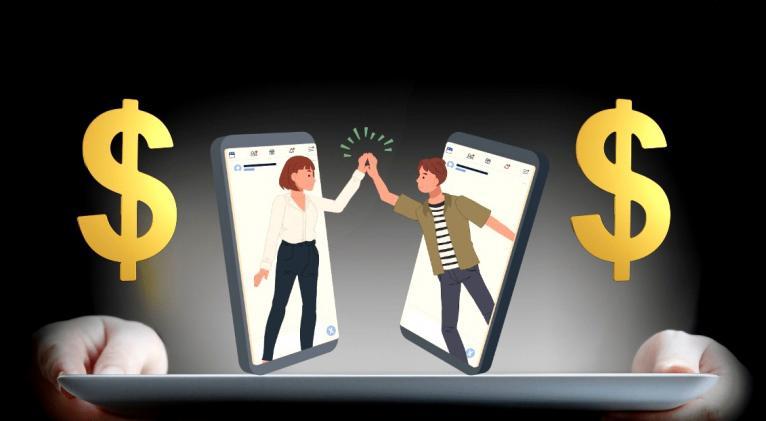Rental Friends: A Cry of Loneliness
especiales

Loneliness seems to have become an epidemic. According to the World Health Organization (WHO), one in four older adults suffers from social isolation, while between 5% and 15% of adolescents have experienced loneliness at some point. Though difficult to quantify, some estimates suggest that over a billion people worldwide frequently or severely experience loneliness.
This is not an issue exclusive to the elderly. Among adolescents, for example, between 5% and 15% have felt lonely—though the WHO believes these numbers could be higher. A study from Brigham Young University (BYU) even claims that the impact of loneliness may rival that of smoking or obesity.
But beyond being a personal and collective health crisis, loneliness has also become a lucrative business in some cases.
This is evidenced by the booming industry that could be broadly labeled "Rental Friends." It operates under different names across the globe, offering paid companionship—whether for conversation, walks, or attending social events like parties or lunches.
In Japan, where nearly 68,000 people died alone last year—their passing unnoticed by anyone—services like Family Romance provide actors to simulate everything from relatives to platonic partners, charging between 5,000 and 10,000 yen per hour. What began in the 1990s has surged astonishingly in 2025, coinciding with the rise of people lacking close family ties.
In Australia, where a third of the population feels lonely, friendship-for-hire services have proliferated, with local platforms offering rented companionship for over $20 per hour.
Meanwhile, in the United States, a study commissioned last year by the American Psychiatric Association found that 30% of adults feel lonely at least once a week, while 10% experience it daily. Among young adults (18-34), the number rises to 30%. In response, apps like FriendRent (launched in October 2024) allow users to "rent" a friend for coffee, park walks, weddings, or simply "someone to vent to," charging $15 to $25 per hour.
John Lanerborg, creator of the Economic Circuit YouTube channel, sees loneliness as a massive market: "Loneliness is a huge industry that could exceed $500 billion by 2030, depending on AI growth."
A Mirror of Our Times
Beyond the business acumen of those capitalizing on loneliness, this phenomenon reflects deeper societal tensions. The last remnants of intimacy and individuality are being overtaken by a neoliberal logic where everything—even human connection—is commodified.
Digital natives, raised on screens, increasingly seek "emotional services" to compensate for eroded social skills. The COVID-19 lockdowns also left lasting scars, replacing physical interactions with digital ones.
Moreover, modern urbanism—with its sprawling cities and "smart" buildings—fosters anonymity rather than socialization, adding another piece to the loneliness puzzle.
The so-called "liquid modernity", where family bonds, long-term commitments, and even identities dissolve, now manifests in "friends on demand"—a temporary fix for fragile human connections.
The decline of real interpersonal relationships, particularly in developed nations, is tied to hyper-individualism and relentless competition. Society rewards autonomy and self-sufficiency, dismissing community reliance as outdated. Why ask for help when you can buy friendship?
Thus, anxiety and depression rise as silent—and often deliberately ignored—epidemics, pushing people toward quick fixes: solve everything with a credit card.
Loneliness as a Market Asset
In earlier times, relationships were built on community values, trust, and mutual respect. Today, the market—with its emphasis on consumption and individualism—has reshaped human bonds, implanting the toxic idea that "you are worth what you own", even when it comes to friendship.
Throughout history, communities thrived without monetary transactions—through mutual aid, barter systems, and volunteer networks. The question is: Can we revive these practices in today’s hyper-connected, competitive world?
There’s a cruel irony in how the same technology that promised global connection now often leaves us more alone. Yet this contradiction carries two lessons: it exposes systemic loneliness while underscoring our innate longing for genuine companionship.
Perhaps the challenge isn’t to erase "rental friends" outright but to rethink economies, lifestyles, and cities—so that companionship isn’t bought by the hour, but nurtured in ways that make us more human.
Translated by Amilkal Labañino / CubaSi Translation Staff














Add new comment